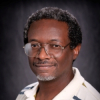Eugene Kennedy

Eugene Kennedy
Eugene Cullen Kennedywas an American psychologist, syndicated columnist, and a professor emeritus of Loyola University Chicago. He remained a professor of psychology at the university for several years. A laicized Catholic priest and a long-time observer of the Roman Catholic Church he wrote over fifty books on psychology, religion, the Catholic Church, and THE psychology of religion, and also published three novels, Father's Day, Queen Bee, and Fixes. He wrote a column for the Religious News Service, distributed by the...
NationalityAmerican
ProfessionPsychologist
Date of Birth18 August 1928
CountryUnited States of America
Our human experience, like the World War II Ultra code-breaking machine, catches the heavy traffic of messages about what we really do and what is done to us every day.
The perception of the horizon is an earthbound event; all horizons disappear in space, and we are left shorn of the sweet roots that have held us to the earth, challenged to imagine what is truly present just before us, a unified and seemingly limitless universe.
Wherever you find 'men together' - writing the rules, as at exclusive golf or other men's clubs, businesses, and lodges where they wear elaborate robes and funny hats - women are kept completely outside if possible and, when grudgingly admitted, to highly restricted areas or token status.
Most ecclesiastical relics are fixed in time at the moment of their manufacture. That is why they are offered for veneration in casings that resemble pocket watches. They have lost their claim to mystery because they are so clearly the products of time.
Human experience resembles the battered moon that tracks us in cycles of light and darkness, of life and death, now seeking out and now stealing away from the sun that gives it light and symbolizes eternity.
Hierarchical formulations died because their wedding cake levels posited a multiply fractured cosmos that does not match the Space Age revelation of a unified universe in which the earth is clearly in, rather than separated from, the heavens. Hierarchical representations do not reflect what either the world or we are like.
Good priests never look for awards and, perversely enough in the clerical culture universe, do not receive many. Like the aged nuns who taught selflessly and nearly anonymously all their lives, these servants of the People of God only get into the papers when their obituaries are printed.
Facebook may not only propagate cyber-loneliness but exacerbate the pain of loss that estranged family members feel when they hear only indirectly, through a third-party posting, news of a child or parent with whom they have not spoken in years.
Bishops may often feel but cannot express the sting and throb of submitting themselves to Roman commands because the latter are always presented as tests of their loyalty to the Pope and of their absolute acceptance of his teaching authority, or Magisterium.
The world, more suffering than sinning, turns toward Pope Francis as in a conversation people turn to the person who is making sense of things.
From his first hours as pope, Francis has re-enacted or spoken of the great pastoral transformation of Vatican II as his own agenda.
As dutiful bishops soon discover, authoritarianism, or control from the top down, characterizes the hierarchical tradition.
If you ask people what attracted them to the person they love, they never tell you of some perfect feature that focused them on sheer surfaces but rather an imperfection that allowed them to see into their uncharted depths.
The object of religion is the imagination, that deep and inexhaustible font of our understanding and symbolizing our deepest possibilities.